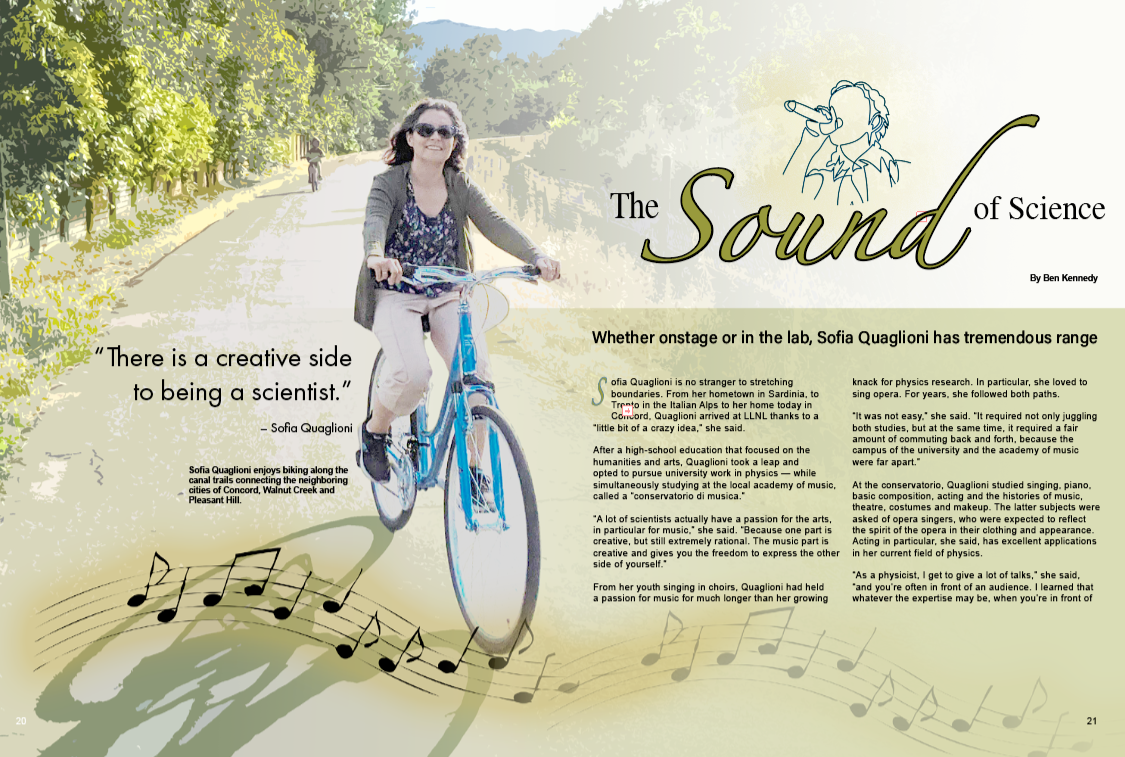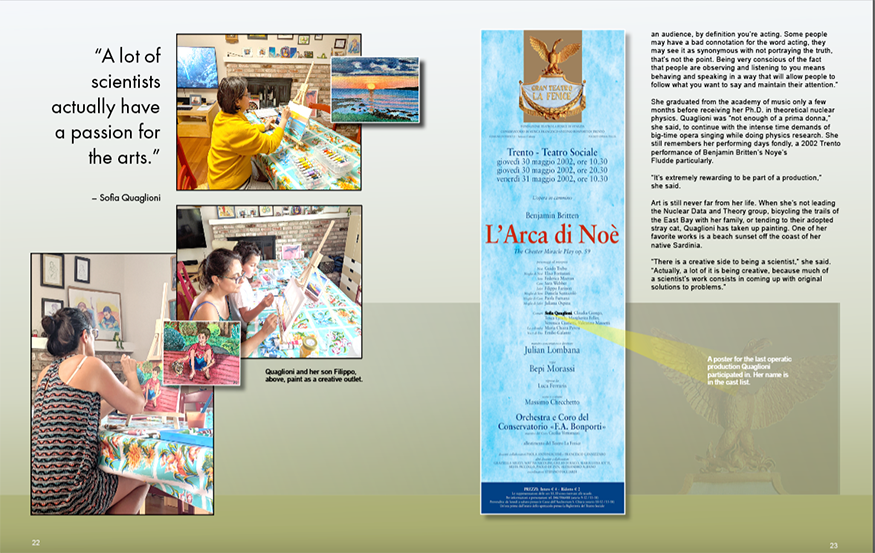By Ben Kennedy
Whether onstage or in the lab, Sofia Quaglioni has tremendous range
Sofia Quaglioni is no stranger to stretching boundaries. From her hometown in Sardinia, to Trento in the Italian Alps to her home today in Concord, Quaglioni arrived at LLNL thanks to a “little bit of a crazy idea,” she said.
After a high-school education that focused on the humanities and arts, Quaglioni took a leap and opted to pursue university work in physics — while simultaneously studying at the local academy of music, called a “conservatorio di musica.”
“A lot of scientists actually have a passion for the arts, in particular for music,” she said. “Because one part is creative, but still extremely rational. The music part is creative and gives you the freedom to express the other side of yourself.”
From her youth singing in choirs, Quaglioni had held a passion for music for much longer than her growing knack for physics research. In particular, she loved to sing opera. For years, she followed both paths.
“It was not easy,” she said. “It required not only juggling both studies, but at the same time, it required a fair amount of commuting back and forth, because the campus of the university and the academy of music were far apart.”
At the conservatorio, Quaglioni studied singing, piano, basic composition, acting and the histories of music, theatre, costumes and makeup. The latter subjects were asked of opera singers, who were expected to reflect the spirit of the opera in their clothing and appearance. Acting in particular, she said, has excellent applications in her current field of physics.
“As a physicist, I get to give a lot of talks,” she said, “and you’re often in front of an audience. I learned that whatever the expertise may be, when you’re in front of an audience, by definition you’re acting. Some people may have a bad connotation for the word acting, they may see it as synonymous with not portraying the truth, that’s not the point. Being very conscious of the fact that people are observing and listening to you means behaving and speaking in a way that will allow people to follow what you want to say and maintain their attention.”
She graduated from the academy of music only a few months before receiving her Ph.D. in theoretical nuclear physics. Quaglioni was “not enough of a prima donna,” she said, to continue with the intense time demands of big-time opera singing while doing physics research. She still remembers her performing days fondly, a 2002 Trento performance of Benjamin Britten’s Noye’s Fludde particularly.
“It’s extremely rewarding to be part of a production,” she said.
Art is still never far from her life. When she’s not leading the Nuclear Data and Theory group, bicycling the trails of the East Bay with her family, or tending to their adopted stray cat, Quaglioni has taken up painting. One of her favorite works is a beach sunset off the coast of her native Sardinia.
“There is a creative side to being a scientist,” she said. “Actually, a lot of it is being creative, because much of a scientist’s work consists in coming up with original solutions to problems.”






